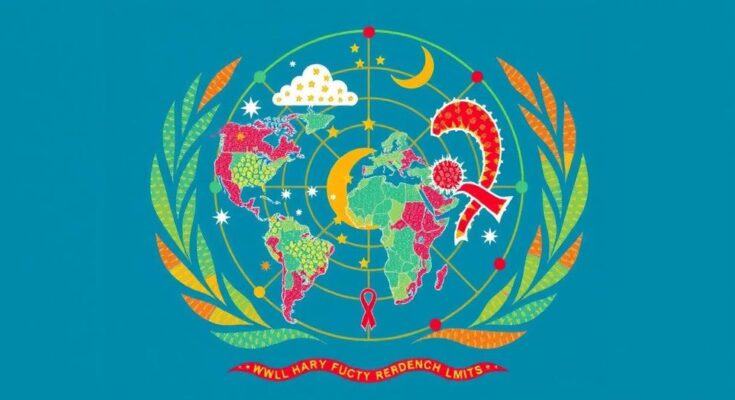The COP29 Climate Conference highlighted warnings from UNAIDS and UNDP about the threats that climate change poses to HIV services. The report identifies a significant funding gap in HIV resources and emphasizes the need for action to prevent climate-induced exacerbation of health crises, particularly in the most vulnerable nations.
At the COP29 Climate Conference in Baku, Azerbaijan, the Joint United Nations Programme on HIV/AIDS (UNAIDS) and the United Nations Development Programme (UNDP) released a report highlighting the detrimental effects of climate change on the HIV epidemic. The agencies warn that climate-induced disruptions to public health systems, heightened rates of coexisting diseases, food and water scarcity, and the displacement of populations could exacerbate the spread of HIV and increase AIDS-related mortality, particularly among vulnerable groups.
The intersection of climate change and public health is increasingly pertinent, as global warming poses risks beyond environmental degradation. Countries grappling with both the HIV epidemic and climate vulnerability are concurrently facing a funding crisis. This scenario not only endangers the progress made against HIV but also deepens health disparities among populations. The report reveals the urgent need for countries to secure adequate resources to combat both climate impacts and health crises, particularly in areas that are heavily burdened by HIV.
The report underscores a critical juncture in addressing the intertwined crises of climate change and HIV. It calls for urgent action to improve funding mechanisms and provides a framework for integrating health considerations into climate strategies. By mobilizing resources and fostering collaboration among stakeholders, it is possible to bolster the resilience of communities most affected by these overlapping challenges, ultimately safeguarding advancements in public health.
Original Source: reliefweb.int




